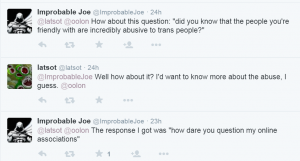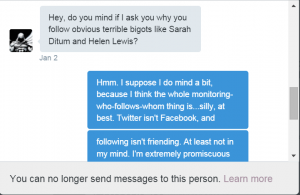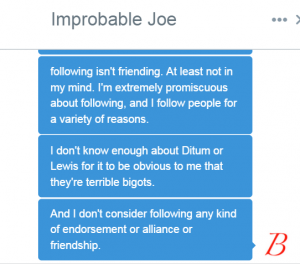A very interesting Fresh Air a couple of days ago about making the movie Tangerine, about a friendship between transgender sex workers in LA.
When film director Sean Baker moved to Los Angeles three years ago, he found himself drawn to one of the city’s most infamous intersections. The corner of Highland Avenue and Santa Monica Boulevard is “an unofficial red light district,” Baker tells Fresh Air’s Terry Gross. But Baker’s interest in the area went beyond the usual transactions: “I thought there must be some incredible stories that take place on that corner.”
Baker wanted to tell those stories, so he and co-screenwriter Chris Bergoch began walking the streets in search of a collaborator who could act as their “passport” into an unfamiliar world.
Many of the women Baker and Bergoch approached assumed they were cops and refused to talk. But then they met Mya Taylor and something clicked: “There was just something about Mya — she attracted our attention from 40 feet away — and we went up to her and introduced ourselves and started talking about this project and it was that ‘eureka’ moment where she expressed just as much enthusiasm back to us. … She was that collaborator we were looking for.”
She played one of the two main parts but she also collaborated on the writing and directing and probably more. It was her idea to make it a comedy, which Baker didn’t like at first but now thinks was the only way to go “because it wasn’t condescending to the subjects.”
Mya Taylor: It was a very sensitive time of my life, because I went through life with my transition keeping shades on my face and covering up with a whole bunch of clothes — like turtlenecks and jackets and things — because I wasn’t comfortable with my body or with my face at that time, because I knew that it wasn’t developed to the way that I wanted it to be, and I knew that it was going to take a few years…
During the filming and everything I was very comfortable, though, because of the crew and Sean and Kiki [co-star Kitana Kiki Rodriguez], those are the two people that I’m closest to, but I was very comfortable during the whole thing, I guess, because [by] acting I kind of took my mind away from that.
It’s not one of those happy-clappy stories about how great sex work is. Taylor didn’t like it at all.
Taylor: I’ve done sex work in my life and it’s not fun, it’s not easy and it’s nothing that you can just get used to. I was pretty much thrown away from my family when I came out to them when I was 18. … I left and I moved to LA with another family member, who actually treated me horribly. … I was forced out to the streets and I came across the youth center — at the time it was called the Jeff Griffith Youth Center — and I went to the center and they helped me a lot with housing and everything to pretty much get myself back on my feet.
But I was constantly surrounded by all these sex workers and drug dealers in the area, and I needed money and I was applying for all these jobs over and over and over and I was like “Why am I not getting any jobs?” So eventually I started applying for more, I did 146 jobs in one month and the last month that I applied for jobs, before all this movie stuff, was 186 jobs and I found myself being discriminated against and I could actually prove it. So you have to ask yourself, “Why are there so many sex workers on Santa Monica and Highland?” Me personally, I did it, because I could not get a job.
It’s scary.
Taylor: When you’re getting inside a car with somebody, it’s scary as it is, because you never know what they could do to you, or you never know if they’re a cop that’s going to take you to jail. It’s really, really, really scary. I think I was more scared of being taken to jail, which I had been [to] already, quite a few times, for doing that. … The whole time, every time I got out there, my heart was always just pounding and pounding. It pounded even harder when a car would pull up, because I know that this person is here, but I know that I need this money.
From the transcript: Gross introduces a bit of dialogue from the movie:
In the opening scene, the two women are in a doughnut shop, talking about what happened on the block while Sin-Dee was in prison. To understand what they’re talking about, you need to know that Chester, the guy they’re going to talk about, is Sin-Dee’s boyfriend and a pimp. And the word fish is used here as a slang term for a woman born with a woman’s anatomy. Alexandra, played by our guest, Mya Taylor, speaks first.
RODRIGUEZ: (As Sin-Dee) I’ve been keeping a secret about me and Chester.
TAYLOR: (As Alexandra) Girl, (laughter), I know what it is. You’re breaking up with him. Thank, God because Honey, for him to be cheating on you like that…
RODRIGUEZ: (As Sin-Dee) Wait, wait, whoa, whoa – what?
TAYLOR: (As Alexandra) You didn’t know?
RODRIGUEZ: (As Sin-Dee) How the [expletive] would I know?
TAYLOR: (As Alexandra) Girl because everything that you been hearing on the block about the girl that he’s been with.
RODRIGUEZ: (As Sin-Dee) Girl, you’re the first girl I seen on the block.
TAYLOR: (As Alexandra) You…
RODRIGUEZ: (As Sin-Dee) Who is she?
TAYLOR: (As Alexandra) Girl, she’s some white fish, I don’t know.
RODRIGUEZ: (As Sin-Dee) Chester’s gonna cheat on me with real fish?
TAYLOR: (As Alexandra) Like, a real fish, Girl – like, vagina and everything.
RODRIGUEZ: (As Sin-Dee) I been gone for 28 days, and you mean to tell me that he’s been out here cheating on me with fish?
TAYLOR: (As Alexandra) Yeah.
RODRIGUEZ: (As Sin-Dee) Do I know her?
TAYLOR: (As Alexandra) I don’t know, I just know that her name starts with a D. It’s something like Danielle, Desiree, Deedee. I don’t know, girl.
Um, thought I. “Fish”? That sounds pretty…contemptuous.
I thought they were going to gloss over that, but they didn’t.
GROSS: I want to ask you about the word fish, which is used in the movie by the trans sex workers to describe cisgender women – like, women who are born with a woman’s anatomy and are comfortable with that…
BAKER: Right.
GROSS: …And identify with that.
BAKER: I guess the proper term these days is chromosomal female.
GROSS: Oh, is it changed already from cis?
BAKER: It’s already changed (laughter). That’s semantics.
GROSS: Wow, I can’t keep up with it. It’s chromosomal now?
BAKER: Nobody can keep up with it. Yes, nobody can…
GROSS: So it’s chromosomal woman.
BAKER: Female.
GROSS: Chromosomal female. OK, so, Mya, have you been hearing fish for a long time? Is that a new word or an old word? I’d never heard it.
TAYLOR: It – you know what, it’s an old word, and I used it in the film because I knew that it’s used in that area a lot. But, like, I knew how to use it, but I cannot tell you exactly where it came from. I just know how to use it. I do not use it in my daily speech (laughter).
GROSS: It sounds a little derogatory (laughter).
BAKER: Yeah, I think that’s where, (laughter) I think we all know where it comes from.
GROSS: (Laughter) Right.
BAKER: I mean, it’s a derogatory…
TAYLOR: Oh, my God. Yeah, yeah it does. Yeah, I don’t use that in my daily life. I don’t talk like that.
It was a nice conversation. They were able to laugh about not being able to keep up with the changes in vocabulary, and at the fact that calling cis women “fish” is an insult based on the old “eww women smell like fish” trope, and to agree that it’s not all that cool to insult women, no not even if you’re trans women.
(This is a syndicated post. Read the original at FreeThoughtBlogs.)






